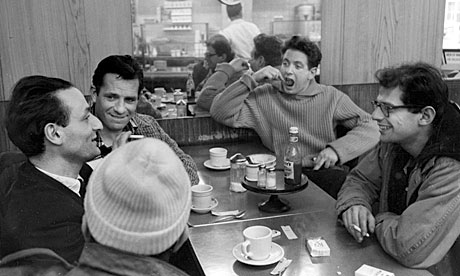You
know what really bugs me? Unbelievable plot points. You know what I’m talking
about. Those turning points in a story that, yes, are theoretically or scientifically
possible, maybe even witnessed in real life, but are really only credible between
the covers of Ripley’s Believe It Or Not,
and not
in any fiction that aims for a veneer of
realism. As far as I’m concerned, you cannot give your character a one-in-a-million
shot at making it out alive, and expect me to swallow it.
Don’t
get me wrong, incredible things happen every day. Things that will blow your
mind. But you can’t rely on something that happens once in a thousand tries, to
save your character, resolve your story, or put a nice bow around a very messy
plot. If you do, I’ll probably throw your book across the room.
Take
“surviving a freefall” for example. It crops up now and again as a way to spice
up fiction, and it really irks me. Are there documented cases of people
surviving a fall from heights of 30,000 feet or more? Yes, there are. But that
doesn’t mean you should make it the exit strategy for your character. Now, I
understand the concept of terminal velocity as well as the next guy. But even
if a falling body reaches a maximum falling speed due to increased drag, you’re
still going to hit the ground at 122 miles per hour. Unless your book is about
Gumby, I just don’t see things working out for your character.
At
the climax of his novel Angels &
Demons, Dan Brown lets Robert
Langdon plummet thousands of feet over Rome.
He survives, of course. He remembers from earlier in the novel that “one
square yard of drag will slow a falling body 20%,” so he manages to grab some
sort of window cover on his way out of the chopper. For those doing the math at
home, 122 miles per hour reduced by 20% is still 98 miles per hour- but really,
that’s for a face-down, belly-to-earth position. Not sure how Langdon would use
his makeshift parachute in that maximum drag position. Brown might not have
been sure either, which is why he had Langdon land in the Tiber River. This “churning”
river is supposedly so “frothy and air-filled” that it is “three times softer
than standing water.”*
Forget
the fact that the helicopter would have to travel 2,000 to 2,500 horizontal
feet to even get from St. Peter’s to the Tiber River. I’ve been to Rome, and
that river is neither churning, nor frothy, nor air-filled. It creeps
downstream like a moving lake, so I’m not buying Brown’s extenuating
circumstances. It’s also probably not that deep, so in all likelihood Langdon
would be looking at a few broken bones when it was all said and done. This
free-fall has bugged me ever since I read it. It must have bugged Hollywood,
too, because they kept Langdon on the ground in the movie.
Amendment
to the complaint:
After
mulling this over, I am willing to make a very specific exception to this rule.
The unbelievable plot point might be acceptable as the inciting incident or
launching pad for a story. In other words, if you’ve just survived a fall from
30,000 feet, then yeah, I want to learn more about you. You deserve to have your
story told. And if an interesting and believable story follows your amazing
brush with certain death, then I’ll read on.
As
I understand it, Salman Rushdie’s The Satanic
Verses features a free-fall from
29,000 feet. Two characters fall into the English Channel and wash up on the
beach alive. Given the magical realism in the book, and the fall serving as an
inciting incident for the story, I’m going to give Rushdie a reluctant pass.
This
is also why the Bourne Identity works (survival of several gunshot wounds,
floating unconscious yet alive in a stormy sea.) It’s unbelievable, but it’s
unbelievable in a way that gives you a reason to read on, rather than being a cheap
gimmick to save the story. That would have bugged me.
*These
quotes from the novel are taken from this page.















